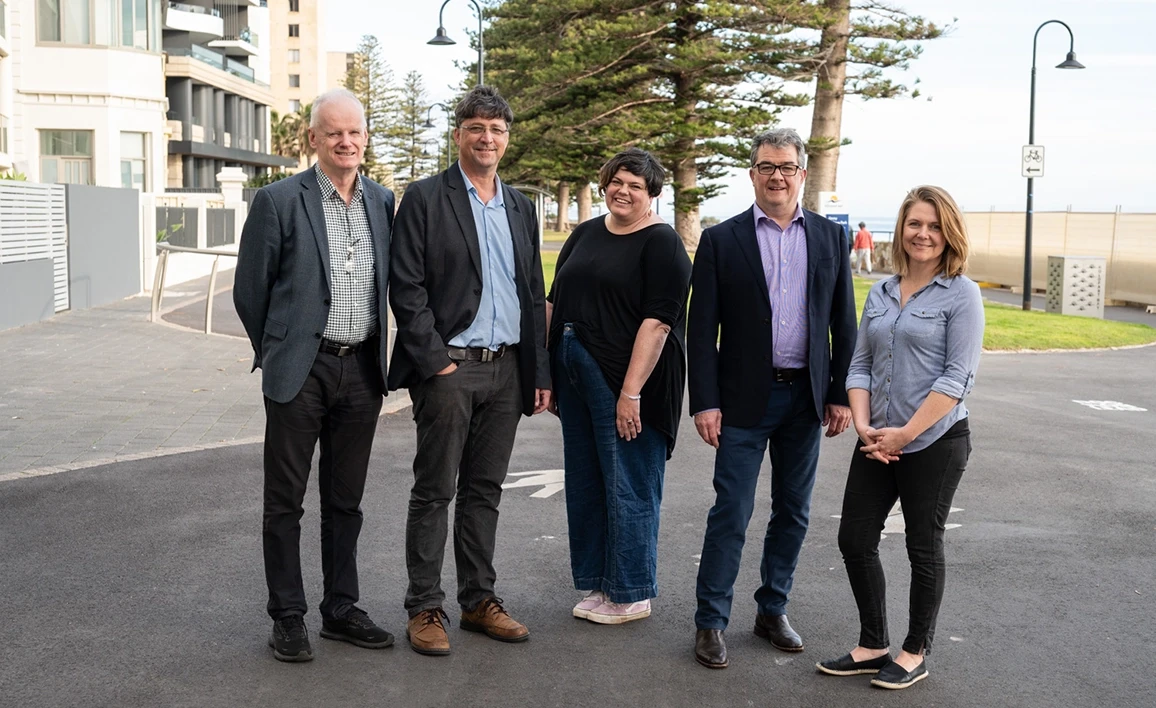Progress
The ROCKet trial launched on 19 December, 2017, with the randomisation of the first patient at Austin Health. The ROCKet trial has now successfully touched down on 5 March, 2025, at Prince of Wales Hospital in Hong Kong. Throughout our journey, we’ve faced numerous challenges, and we could not have reached the destination without the dedication and hard work of all our sites and collaborators. Thank you for your commitment.
Summary
Study hypotheses
That intravenous ketamine given prior to and following surgical incision for up to three days reduces the incidence of chronic post-surgical pain at three months.
Study size
4884 patients.
Study design
Large, multicentre, randomised, double blind trial.
Primary outcome
Chronic post-surgical pain at three months.
Study population
Elective abdominal surgery involving a skin incision at least 8 cm in length, including open inguinal herniorraphy, non-cardiac thoracic surgery, including mastectomy, breast reconstruction surgery and VATS, and major orthopaedic surgery (hip, knee and shoulder arthroplasty and spinal surgery).
Study duration
Five years.
Funding
Main study
The Australian National Health and Medical Research Council 2017
A$4,823,395
The Australian National Health and Medical Research Council 2023
A$967027
Pilot study
Reduction Of Chronic Post-surgical Pain with Ketamine - A pilot study
A$5000 ANZCA Pilot grant 2013
A$47618 ANZCA Project grant 2014
Biomarker determinants of ketamine response status in the ROCKet trial
ANZCA Project Grant 2020
A$63,000
Long term follow up study of chronic post-surgical pain in the ROCKet Trial
ANZCA Project Grant 2023
A$70,000
Sub-studies
Biomarker determinants of ketamine response status in the ROCKet trial
Principal investigator: Professor Philip Peyton
Delirium sub-study
Principal investigator: Associate Professor Lis Evered
Media release
ROCKet funding boost for chronic post-surgical pain trial 21 August 2023
Trial registration
Australian New Zealand Clinical Trials Registry registration number: ACTRN12617001619336.
Participating hospitals
| Australian Hospitals |
| Alfred Hospital |
| Austin Health |
| Box Hill Hospital - Eastern Health |
| Dandenong Hospital |
| Fiona Stanley Hospital |
| Frankston Hospital |
| Goulburn Valley Health |
| Grampians Health Ballarat (previously Ballarat Health Services) |
| Logan Hospital |
| Lyell McEwin Hospital |
| Mackay Base Hospital |
| Maroondah Hospital - Eastern Health |
| Monash Medical Centre |
| Moorabbin Hospital |
| Nepean Hospital |
| Northern Health |
| Peter MacCallum Cancer Centre |
| Princess Alexandra Hospital |
| Redcliffe Hospital |
| Rockhampton Hospital |
| Royal Adelaide Hospital |
| Royal Darwin Hospital |
| Royal Melbourne Hospital |
| Royal Perth Hospital |
| Royal Prince Alfred Hospital |
| Sir Charles Gairdner Hospital |
| St John of God Hospital (Subiaco) |
| St Vincents Hospital, Melbourne |
| The Tweed Hospital |
| University Hospital Geelong - Barwon Health |
| Westmead Hospital |
| Wollongong Hospital |
| New Zealand and Hong Kong |
| Middlemore Hospital, NZ |
| Manukau Surgery Centre, NZ |
| Prince of Wales Hospital, Hong Kong |
Contact
For further information about ROCKet and the sub-studies, please contact the ROCKet Project Manager, Sofia Sidiropoulos by email.

